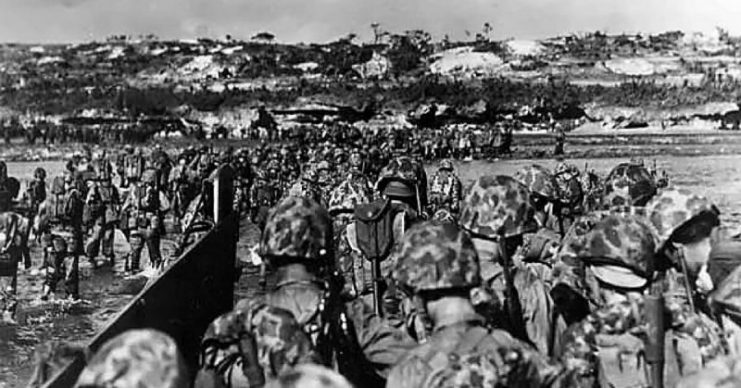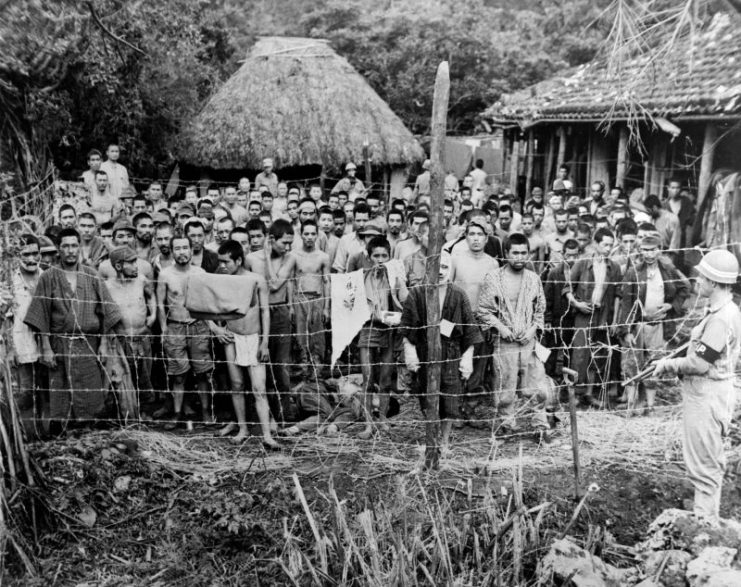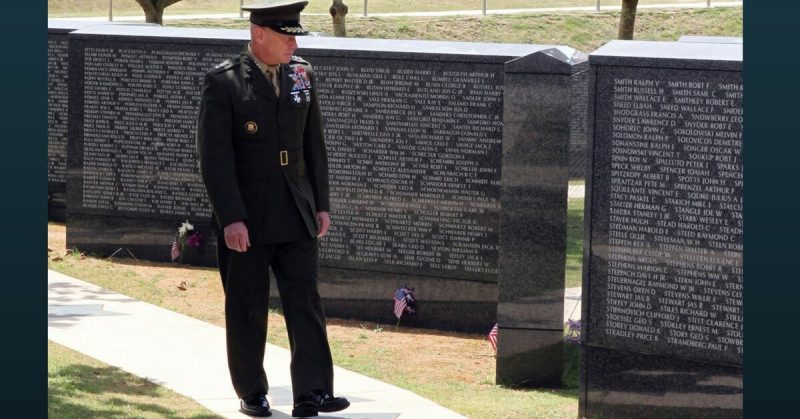A recent nationalist movement in Japan seems to be trying to sanitize the history of Japan during World War II, much to the concern of local people who feel that their wartime memories are being trampled upon. Nationalist educator, Nobukatsu Fujioka, has recently won the battle to minimize the Japanese WWII history of Asian women being forced to work as sex slaves and he has now turned his attention to the suicides that took place on Okinawa after civilians were ordered to die rather than be taken prisoner when the American army arrived.
If he has his way, all reference to this will be removed from history books altogether as he claims that no such orders were issued by the Japanese army, contrary to the memories of the survivors of this period in history.
The battle for Okinawa took place over a three-month period and claimed a staggering 200,000 lives of which 12,520 were American servicemen and 94,136 Japanese servicemen. The reason for the deaths of over 94,000 Okinawan residents, around a quarter of the total population of Okinawa at the time, is now being questioned by Fujioka.
The trauma of what happened to the residents of Okinawa when the American forces attacked the island is still very much in evidence. The residents of this tiny island fear that their suffering during the war has not received the recognition that it deserves and now, with the current wave of nationalistic fervor sweeping across the country, their suffering will receive less notice and stands a chance of being ignored altogether.
They are concerned that as there was no written order from the military to force civilians to take their own lives, historians will now be able to erase this from history and negate the history of the suicides and deaths that took place on the island at the hands of the Japanese soldiers.
Convincing evidence has been led by Okinawan residents that lived through this. The evidence is not anecdotal, it is real and the stories told by the Okinawans are heartbreaking. Sumie Oshiro tells how she and her friends fled to the forest when they were terrified by the stories that the Japanese soldiers told of what would happen to pretty young women when the Americans arrived.

The soldiers told them that they would be better off dead and gave the girls a hand grenade to use to kill themselves. She remembers them all sitting in a circle and trying to set off the grenade so they would all die but they could not get it to detonate.
Displays in the Okinawa Prefectural Peace Memorial Museum show some of the sufferings of the Okinawan people. One display shows a Japanese soldier, holding a bayonet, standing over an Okinawan family while the mother tries to comfort her crying child. The caption makes it clear that the residents were massacred by the soldiers and forced to commit suicide.
The displays also indicate that the soldiers drove the residents out of the protection of caves on the island when the American navy started shelling the island. In addition to this, the Japanese commander banned the speaking of the local Okinawan dialect as it was unintelligible to the Japanese servicemen. Ostensibly this was to stop spying taking place, but it led to the death of over 1,000 civilians as they were shot by the Japanese army for speaking their local dialect.

On Geruma Island, Takejiro Nakamura is a guide at a museum that is housed in a local house that still bears the bullet holes from the American invasion. He was 15 years old at the time of the invasion, and he remembers it very well. He remembers the Japanese Army telling the residents that on the other islands the women were raped and killed by the invading forces and that the men had their hands tied and were then driven over by tanks.
He also remembers that late in March of 1945, as the Americans approached utter terror spread among the residents and 56 of the 130 residents committed suicide. He fled with his family and his neighbors, and he remembers his mother panicking and strangling his 20-year-old sister. He tried to kill himself but could not complete the act. When the Americans arrived and treated the family with respect and compassion he was astounded, but the death of his sister tortured his mother all her life, and she never spoke of the incident.
History should never be forgotten and attempting to rewrite it insults those that lived through it. History should be remembered and taught so that it is not repeated; for how do we learn if not from our mistakes.
